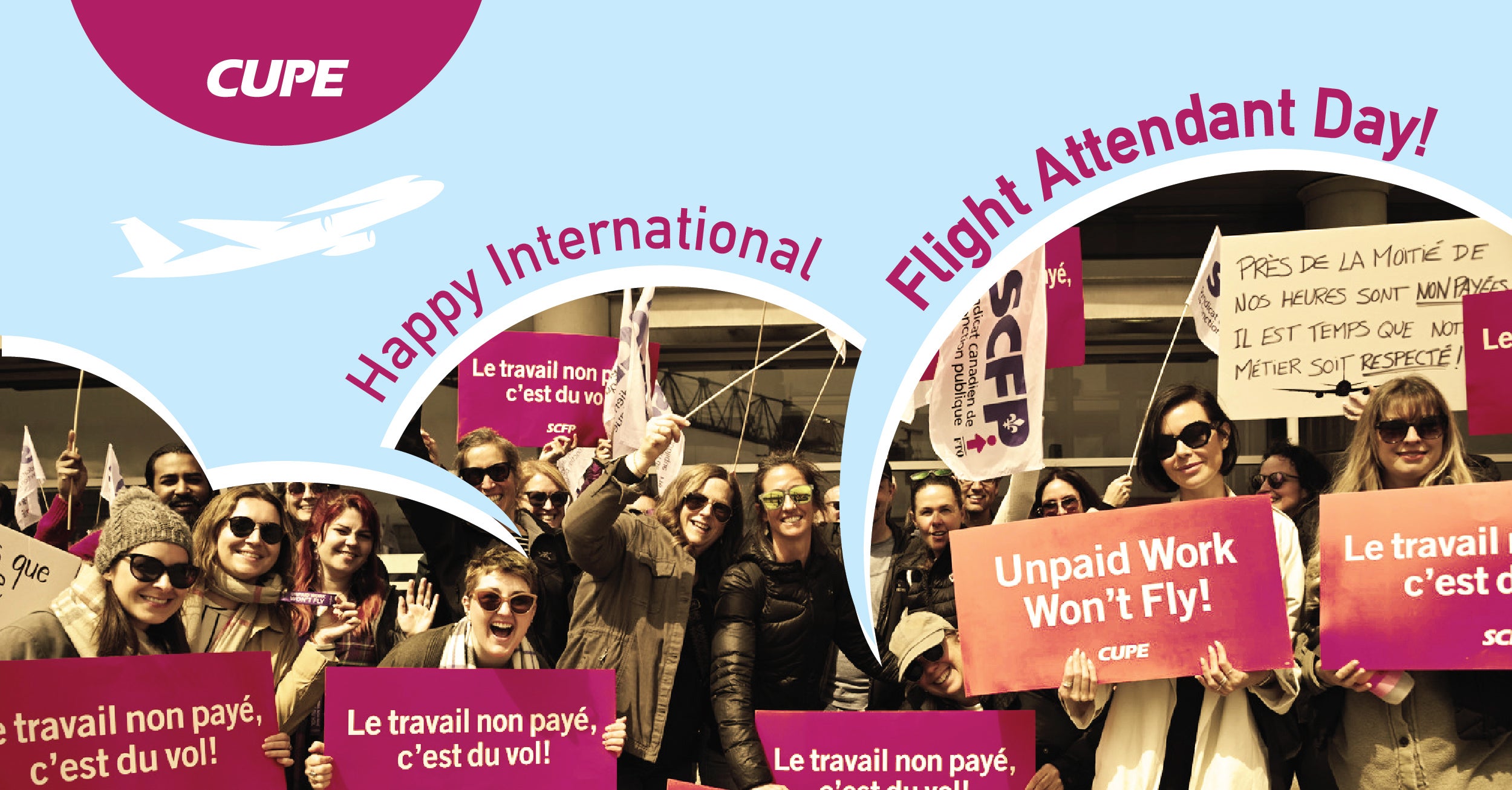Parliament Hill was a buzz last week with CUPE flight attendants from nine different airlines engaging in a day of action to raise awareness about unpaid work in the airline industry.
On the eve of International Flight Attendant Day, flight attendants leafletted and talked with morning commuters, held meetings with MPs and Senators from all major parties, and held a news conference with NDP leader Jagmeet Singh to take aim at the lack of action from the federal government to remedy the issue of unpaid work.
“Abusive industry practices thrive in the darkness, so we are here to shine a light, so that airline executives can no longer hide in the dark,” said Wesley Lesosky, President of CUPE’s Airline Division.
Our companies may compete against each other for market share, but as flight attendants, we have a lot to gain by working together to improve industry standards. Together, we are changing minds on Parliament Hill and getting that much closer to ending the abuse of unpaid work in our industry. We love our jobs, but we aren’t volunteers!
You can see photos of the day of action here.
If you haven’t already, sign your union card here today!

